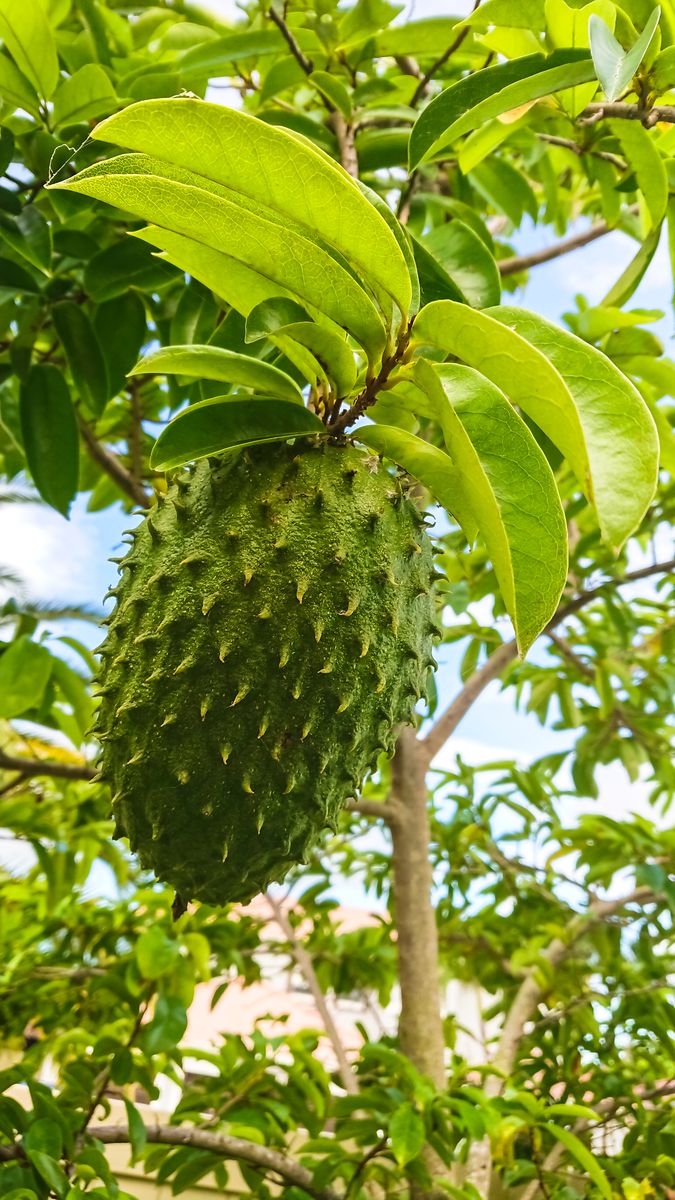Soursop, scientifically known as Annona muricata, is a tropical fruit with many names, including guanabana and paw-paw. Known for its distinctive flavor and creamy texture, soursop has been celebrated for centuries in traditional medicine for its remarkable health benefits. According to WebMD, the fruit has a rich nutrient profile and offers an impressive range of potential health advantages.
Below is what the American corporation that publishes information about human health and well-being has shared about the soursop.
Nutrient-rich and Packed with Vitamin C
Soursop is notable for its high vitamin C content, a potent antioxidant crucial for enhancing immune health. Vitamin C aids in the defense against harmful pathogens, minimizing the effects of free radicals and shielding the skin and cells from environmental oxidative damage. Remarkably, a single soursop fruit offers an impressive 215% of the daily recommended vitamin C intake, making it a natural means of bolstering immunity and promoting overall health, per the publication.
Antioxidant Powerhouse
Beyond vitamin C, soursop is rich in other antioxidants, such as phytosterols, tannins, and flavonoids. Antioxidants are crucial for maintaining health as they neutralize free radicals, which can otherwise cause cellular damage and contribute to chronic conditions like heart disease and cancer—the powerful antioxidants in soursop aid in reducing inflammation and oxidative stress associated with aging and degenerative diseases.
Boosts Digestive Health
Soursop is well-known for its high fiber content, which helps with digestion and supports gut health. It promotes regular bowel movements, prevents constipation, and helps maintain a healthy digestive system. Its anti-inflammatory properties may also alleviate digestive conditions such as gastritis and ulcers.
Anti-inflammatory and Pain-Relieving Properties
Traditionally, the leaves, fruit, and even bark of the soursop tree have alleviated pain and inflammation. Research has suggested that soursop may help reduce swelling and discomfort associated with arthritis. Its anti-inflammatory properties make it an excellent remedy in herbal medicine for managing pain without relying on conventional pharmaceuticals.
Potential Cancer-Fighting Properties
According to PG Organix, soursop has garnered attention for its potential anti-cancer properties. Several studies have explored the fruit's ability to inhibit the growth of specific cancer cells, including those related to breast, prostate, and colon cancer. These effects are attributed to acetogenins, natural compounds in soursop that may selectively target and destroy cancer cells without harming healthy ones. While more research is needed, these early findings are promising.
How to Eat Soursop
Soursop is typically available in fresh and frozen forms in grocery stores nationwide. According to WebMD, it can be enjoyed raw or used in various culinary applications, including homemade popsicles, ice cream, smoothies, juices, toppings for oatmeal, yogurt, or chia pudding, and as an ingredient in quick bread or cake batter. Soursop Nutrition also suggests enjoying the fruit in a pumpkin shake.
,type=downsize)








